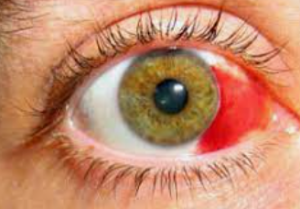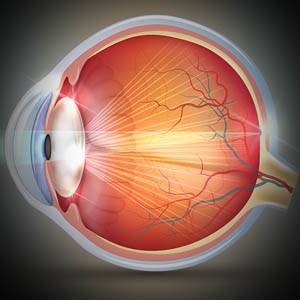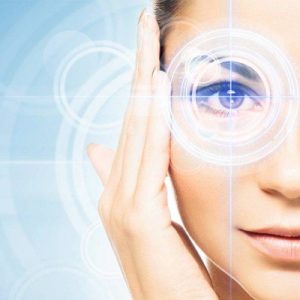If you suffer from red, sore allergic eyes, there are several ways to prevent this condition from affecting your life.
Allergies are a common complaint, and can cause a great deal of discomfort— sneezing, sniffling, stuffy nose, and itchy throat can all affect your daily functioning.
What you may not realize is— your eyes can also be affected by allergies.
Up to 25 percent of people worldwide suffer from eye allergies.
Many eye allergies symptoms occur with the symptoms you may already be aware of. If your eyes are itchy, red and irritated, and there is no other explanation, allergies may be the cause.
What causes eye allergies?
A variety of allergens may be affecting your eyes, if you suffer with allergy eyes, it is best to get tested by an allergist to determine the cause of your allergies.
The following are the most common causes:
- Outdoor allergens: pollens from grass, weeds, and trees
- Indoor allergens: dust mites, pet dander, and mold
- Irritants: cigarette smoke, diesel exhaust, and perfume
Eye allergy symptoms
- Itchy eyes
- Redness
- Burning
- Watery eyes
- Swollen eyelids
How do I know if I have eye allergies?
Eye allergies develop when the body overreacts to something in its environment. Eye allergies share symptoms with some ocular diseases, making an accurate diagnosis critical.
If you are experiencing eye allergy symptoms, make an appointment with your eye doctor for a thorough examination of your ocular health. Your eye doctor will use specialized tools to detect the presence of allergies.
With the use of a special microscope, your eye doctor will be able to detect the cause of any redness or swollen blood vessels on the surface of the eye.
If you suffer with allergies, contact an eye doctor near you, who can diagnose and treat this condition, so you don’t need to suffer with red and uncomfortable eyes.
SEE RELATED: Subconjunctival Hemorrhage
How to alleviate eye allergy symptoms
Many mild allergy symptoms can be alleviated with over-the-counter medications.
If your allergy symptoms are not relieved by these medications, your eye doctor can prescribe medicated eye drops or oral medication.
1. Artificial tears eye drops
Non-prescription eye drops may be sufficient in providing short term relief of mild symptoms. Artificial tears both moisten the eyes to soothe irritation, and wash allergens away. These drops can be used as often as needed and are available over-the-counter at your local drug store.
There are many different brands of artificial tears on the market, so ask your eye doctor for a recommendation.
2. Preservative free eye drops
Preservative-free drops are recommended because they contain fewer additives which can further irritate the eyes. Keep in mind that many of these preservative-free eye drops may only be used for a few weeks after the bottle is opened— it is important to follow the directions on the bottle.
In addition, many eye drops come in two forms, single-use preservative free vials and multi-use bottles, with or without preservatives. There are advantages and disadvantages to both. Ask your eye doctor what he recommends for your individual needs.
3. Eye drops for moderate to severe allergies
These are usually decongestant eyes drops, importantly these type of eye drops are not recommended if you have glaucoma.
These eye drops are over-the-counter and are used to reduce redness by narrowing the blood vessels in the eye. They are available in two forms: decongestant only, and decongestant with an antihistamine— recommended for relief of severe itching.
Decongestant eye drops should only be used for up to three days. Prolonged use can produce a rebound effect and increase redness and swelling.
Prescription eye drops and medications
Prescription eye drops and medications also are used to treat eye moderate to severe allergies, and provide both short- and long- term relief.
There are many different types of prescription eye drops:
Antihistamine eye drops reduce itching, redness and swelling. These drops provide fast relief, but need to be used frequently throughout the day, as the effects tend to last only a few hours.
Mast cell stabilizer eye drops prevent the release of histamine and other chemicals that cause the allergic reaction. These drops must be used before allergen exposure to prevent itching.
Antihistamine and mast cell stabilizer eye drops are a combination eye drop that treats and prevents eye allergies. These drops are inserted twice a day for fast, long-lasting relief of itching, burning, tearing, and redness.
NSAID eye drops (Nonsteroidal anti-inflammatory drugs) relieve itching, but may cause burning or stinging when inserted, and need to be used four times a day.
Corticosteroid eye drops treat chronic and severe itching, redness and swelling. These steroidal eye drops should only be used long term (more than two weeks) under a doctor’s supervision as they can cause an increased risk of infection, glaucoma and cataracts.
Oral antihistamines
If eye drops are not sufficient in treating your allergies, your eye doctor may recommend an oral antihistamine for further relief.
Oral antihistamines, both over-the-counter and prescription, can be mildly effective in relieving the itching associated with eye allergies. However, these medications can cause dry eyes and actually worsen your allergy symptoms.
Allergy shots (immunotherapy)
Allergy shots improve tolerance to an allergen by gradually increasing exposure to the allergen over time. Optimal results are generally noticed after several months of treatment, and medications to alleviate symptoms may still be required.
How to prevent eye allergy symptoms
Avoid allergy triggers by implementing the following suggestions:
- Use air conditioning. Keep windows closed during high pollen seasons.
- Wear glasses or sunglasses. This will help to protect your eyes from pollen.
- Limit dust accumulation. Use “mite-proof” bedding covers and wash your bedding frequently, using hot water (at least 130 degrees Fahrenheit). Clean shelves with a wet rag and floors with a mop, instead of dry-dusting or sweeping.
- Control mold. Use a dehumidifier to control mold growth. Treat visible mold with detergent and a five percent bleach solution.
- Wash your hands. This will help to eliminate any allergens you may have come in contact with, such as when touching a pet or cutting the grass.
- Avoid rubbing your eyes. This can further irritate your eyes.
While allergies are a common complaint, there is no need to continue suffering!
LEARN MORE: Guide to Eye Health
Eye doctors can help you cope with allergies, contact an eye doctor near you, who can diagnose and treat your eye allergy, you don’t need to suffer with red and uncomfortable eyes.









